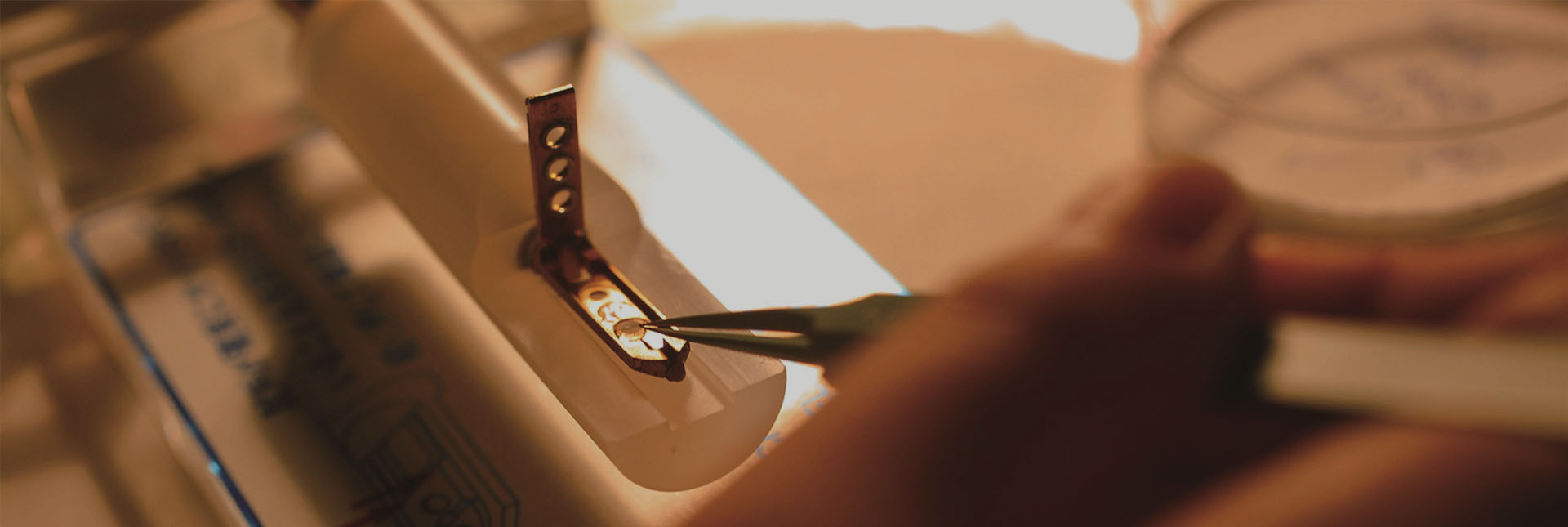JIN Ying

JIN Ying
Principal Investigator
Email: yjin@sinh.ac.cn
Tel: 021-63846590-776520
Research Field
Over 20 years, Jin lab has focused on the regulatory mechanism of self-renewal and differentiation of pluripotent stem cells, especially human embryonic stem cells, and is committed to revealing signaling pathways, transcription factors and epigenetic regulatory factors that ensures the infinite self-renewal of embryonic stem cells, aiming to optimize the in vitro culture system of human embryonic stem cells and lay the foundation for obtaining functional cells required for clinical treatment.
Personal Introduction
9/1983-10/1988: Peking Union Medical College (PUMC) and Chinese Academy of Medical Science (CAMS), Ph.D., Beijing, China
10/1988-9/1994: Postdoctoral fellow, Department of Pharmacology, The University of North Texas Health Science Center, Fort Worth, Texas
9/1994-9/1998: Research fellow, Molecular Immunology Center, Department of Microbiology University of Texas Southwestern Medical Center, Dallas, Texas
10/1999-5/2002: Researcher, Developmental Biology Research Laboratory of Shanghai JiaoTong University School of Medicine, Shanghai, China
4/2002 to present: Principal Investigator of Stem Cell Research Group in Shanghai Institutes of Biological Sciences, Chinese Academy of Sciences, China
6/2002-5/2017: Director of Molecular Developmental Biology Department of Shanghai JiaoTong University School of Medicine, Shanghai, China
3/2006-3/2017: Director of Key Laboratory of Stem Cell Biology, Chinese Academy of Sciences
6/2017 -11/2021: Chair, Department of Histoembryology, Genetics and Developmental Biology in Shanghai JiaoTong University School of Medicine, Shanghai, China
12/2021 to present: Principal Investigator of Department of Histoembryology, Genetics and Developmental Biology in Shanghai JiaoTong University School of Medicine, Shanghai, China.
Major Publications
Liu X, Fang Z, Wen J, Tang F, Liao B, Jing N, Lai D*, Jin Y * (2020) SOX1 is required for the specification of rostral hindbrain neural progenitor cells from human embryonic stem cells. iScience. 23(9):101475.
Fang Z, Liu X, Wen J, Tang F, Zhou Y, Jing N, Jin Y* (2019) SOX21 Ensures Rostral Forebrain Identity by Suppression of WNT8B during Neural Regionalization of Human Embryonic Stem Cells. Stem Cell Reports. 13: 1038-1052.
Zhu Z, Li C, Zeng Y, Ding J, Qu Z, Gu J, Ge L, Tang F, Huang X, Zhou C, Wang P, Zheng D and Jin Y* (2017) PHB associates with the HIRA complex to control an epigenetic-metabolic circuit in human ESCs. Cell Stem Cell. 20: 274-289.
Zhou C, Yang X, Sun Y, Yu H, Zhang Y* and Jin Y* (2016) Comprehensive profiling reveals mechanisms of SOX2-mediated cell fate specification in human ESCs and NPCs. Cell Res. 26: 171-189.
Zhu L, Zhang S and Jin Y* (2014) Foxd3 suppresses NFAT-mediated differentiation to maintain self-renewal of embryonic stem cells. EMBO Rep. 15: 1286-96.
Yang H, Liu Z, Ma Y, Zhong C, Yin Q, Zhou C, Shi D, Cai Y, Zhao H, Wang H, Tang F, Wang Y, Zhang C, Lai D, Jin Y*, Sun Q*, Li J* (2013) Generation of haploid embryonic stem cells from Macaca fascicularis monkey parthenotes. Cell Res. 23: 1187-1200.
Cui L, Guan Y, Qu Z, Zhang J, Liao B, Ma B, Qian J, Li D, Li W, Xu G* and Jin Y* (2013) Wnt signaling determines tumorigenicity and function of ESC-derived retinal progenitors. J Clin Invest. 123: 1647-1661.
Li X, Zhu L, Yang A, Lin J, Tang F, Jin S, Wei Z, Li J and Jin Y* (2011) Calcineurin-NFAT signaling critical regulates early lineage specification in mouse embryonic stem cells and embryos. Cell Stem Cell. 8: 46-58.
Fang H, Yang Y, Li C, Fu S, Yang Z, Jin G, Wang, K, Zhang J*, Jin Y* (2010) Transcriptome analysis of early organogenesis in human embryos. Developmental Cell. 19: 174-184.
Li L, Sun L, Gao F, Jiang J, Yang Y, Li C, Gu J, Wei Z, Yang A, Lu R, Ma Y, Tang F, Kwon S, Zhao Y, Li S, Jin Y* (2010) Stk40 links the pluripotency factor Oct4 to the Erk/MAPK pathway and controls extraembryonic endoderm differentiation. PNAS. 107: 1402-1407.
Liao B and Jin Y* (2010) Wwp2 mediates Oct4 ubiquitination and its auto-ubiquitination in a dosage-dependent manner. Cell Res. 20: 332-344.
Li H, Wang B, Yang A, Lu R, Wang W, Zhou Y, Shi G, Kwon SW, Zhao Y, Jin Y*(2009) Ly-1 antibody reactive clone is an important nucleolar protein for control of self-renewal and differentiation in embryonic stem cells. Stem Cells. 27: 1244-1254.
Xu H, Wang W, Li C, Yu H, Yang A, Wang B, Jin Y* (2009) WWP2 promotes degradation of transcription factor OCT4 in human embryonic stem cells. Cell Res.19: 561-573. *Corresponding Author



